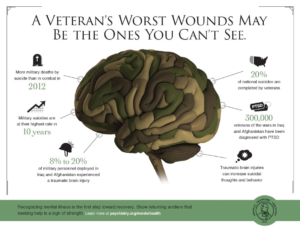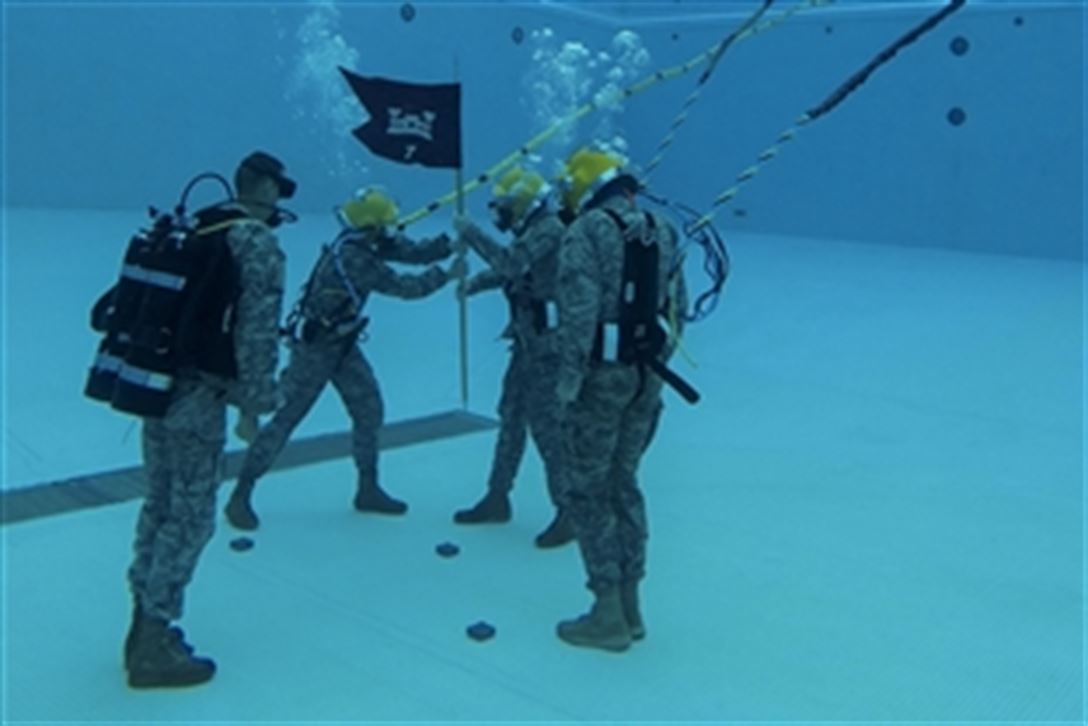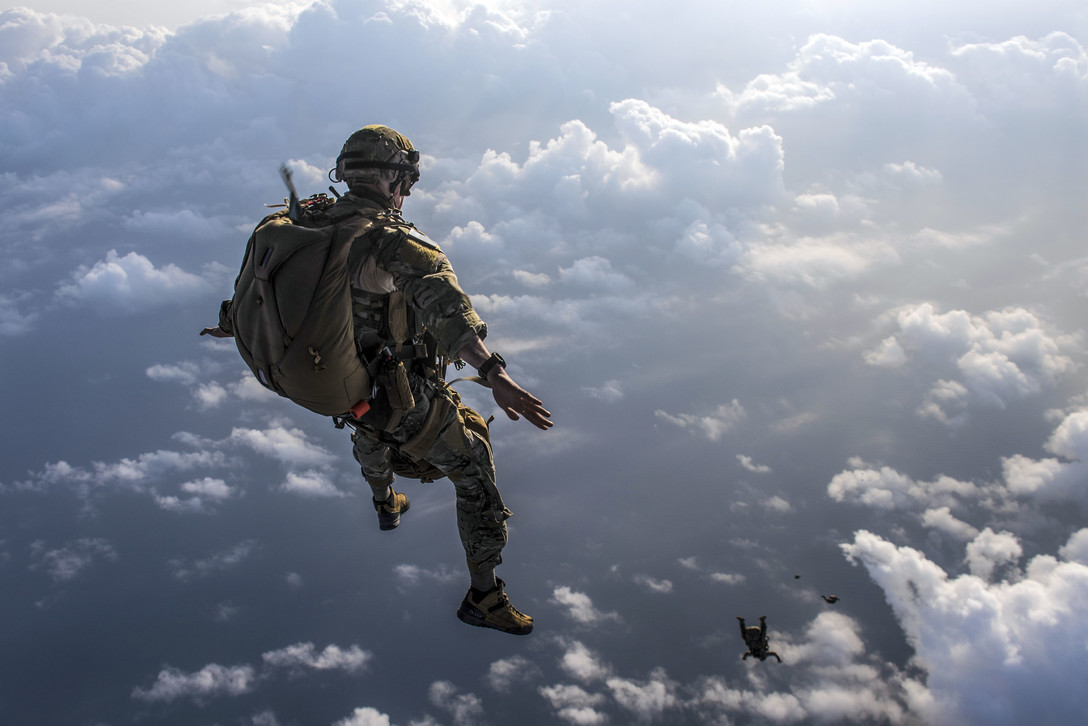 In previous posts, I’ve talked about how awareness is the key to recovery for veterans, I’ve joined with others talking about what PTSD is and what it isn’t, and I’ve attempted to describe what happens emotionally to veterans when they return from combat. All of these are an attempt to support veterans in transition out of the service to understand: you are not alone. There are hundreds of thousands of veterans transitioning out of combat and out of the military, and many of them are experiencing similar challenges.
In previous posts, I’ve talked about how awareness is the key to recovery for veterans, I’ve joined with others talking about what PTSD is and what it isn’t, and I’ve attempted to describe what happens emotionally to veterans when they return from combat. All of these are an attempt to support veterans in transition out of the service to understand: you are not alone. There are hundreds of thousands of veterans transitioning out of combat and out of the military, and many of them are experiencing similar challenges.
This is also an attempt for those who are not veterans…family members, for example, or those who have never served but support military service members and veterans in any way they can…to understand a little bit more about what veterans experience, what they think and feel. Many veterans struggle with how to explain how their experiences changed them…as much as they want people around them to understand, they also don’t want to, and don’t know how to.
Veterans sacrificed. It’s what they did, and what they want to continue to do, to serve. Being served, especially regarding mental health, takes determination on the part of the veteran, and understanding on the part of the mental health professional.
The bottom line is this: stability in a veteran’s mental health is a key factor in the success, or failure, of their transition. There are literally hundreds of nonprofits addressing what can be described as the “wellness” needs of veterans: resiliency camps, days out at the ballpark, fishing trips. There are excellent nonprofits that help veterans give back to their community, such as Team Rubicon and The Mission Continues, which is a great opportunity to connect with other veterans and regain that sense of community that many of us miss after we leave the service. How many organizations, however, help connect a veteran with a mental health professional so they can truly explore how their experiences have affected them?
Two outstanding programs, Give an Hour and The Soldiers Project, support veterans by connecting them with mental health professionals who provide free services to veterans. These organizations rely on the support of the mental health professional community, however; it is incumbent upon the provider community to bear the cost of providing treatment. The VA Vet Centers are outstanding resources, but are limited in the type and number of veterans they can serve. There was recently an announcement about the Cohen Veterans Network that is going to set up clinics around the U.S. to support veterans; an excellent opportunity for veterans to get the support they need.
You see, we can house veterans, we can join together with the excellent work that LinkedIn is doing and connect veterans to employment, we can support the veteran’s needs when they become involved in the legal system…but what about the underlying causes for veteran homelessness, unemployment, and justice involvement? That is where the mental health professional community can support.
I hear what you’re saying, cause I hear veterans say it all the time: “I don’t need no shrink. Therapy is a bunch of psychobabble crap. There’s nothing wrong with me that a stiff drink and isolation can’t take care of.” Meanwhile, we’re flying off the handle when we trip over one of the kid’s toys, shop at midnight to avoid crowds, and follow a prescribed path from work to home day in and day out. That’s not living…that’s existing. So why would we avoid taking advantage of something that will help us live, help us recover, help us understand how combat and our service changed us?
“Well, therapists don’t get me. They don’t understand what I went through, and I don’t feel like trying to explain it.” My response: how do you know if you don’t check it out? I have experienced some colleagues who want to help veterans, but don’t understand military culture, sure…but the vast majority of my colleagues that I have spoken to DO understand. They have taken the time to learn at least the basics of the military mindset; and on top of that, they are trained and experienced professionals who want to support veterans in their search for wellness and recovery. But if you have needs in other areas of your life, you keep looking for someone you like to help you until you find the right person. When my wife and I were buying our house, we started working with one realtor that we didn’t particularly click with…but we needed a house, so we kept looking until we found a realtor we liked. You look for a good mechanic, and don’t stop until you find one, because the car needs to be fixed. Why do veterans then stop at one therapist? The house still needs to be bought, the car still needs to be fixed, you still need to find a place of stability in your thoughts and emotions.
Veterans are not broken-winged birds, we are not a three legged dogs, we do not need coddling or protection from the big, evil world. It’s not necessary, and it’s certainly not wanted.
Veterans have seen, and many continue to think about, some of the most horrendous acts that one human being can do to another. You don’t go through something like that and come out the other side unchanged…but that doesn’t mean we’re damaged, or somehow broken or flawed. It means that we have had a natural reaction to real life; and seeking help for how that changed us is not something that turns us into that broken-winged bird, either.
I support and applaud all of the veterans who are attempting to make the transition from the military to your new civilian careers. You are being the proactive, problem-solving professionals the military taught us to be. But for every veteran who successfully transitions, I can all but guarantee that you know a former battle buddy, flight crew member, ship mate, who struggles with addiction, homelessness, or suicide.
By all means, go to the ball park, enjoy a fly fishing trip, ride horses and pet dogs…but know that none of those things, by themselves, will help you recover from what you have experienced. Allow a mental health professional to help you come in from the fight for a few minutes, set down your pack, take off the body armor, and take a knee. Perhaps your life depends on it.



2 Comments
Let's Talk About Veterans for a Minute | Head Space and Timing · November 4, 2016 at 4:29 am
[…] For Veterans, Success or Struggle in Transition Can Depend on Mental Health. As I mention in this post, stability in a veteran’s mental health is a key factor in the success or failure of their transition. […]
5 Keys to Successful Military Transition from Positive Psychology – Head Space and Timing · June 29, 2017 at 4:01 am
[…] it’s a challenge. You can do all that you can to prepare, or not be prepared at all; but the single most important thing you can do is get your mindset right. There are dozens, if not hundreds of choices you have to make: am I staying where I’m at, […]
Comments are closed.